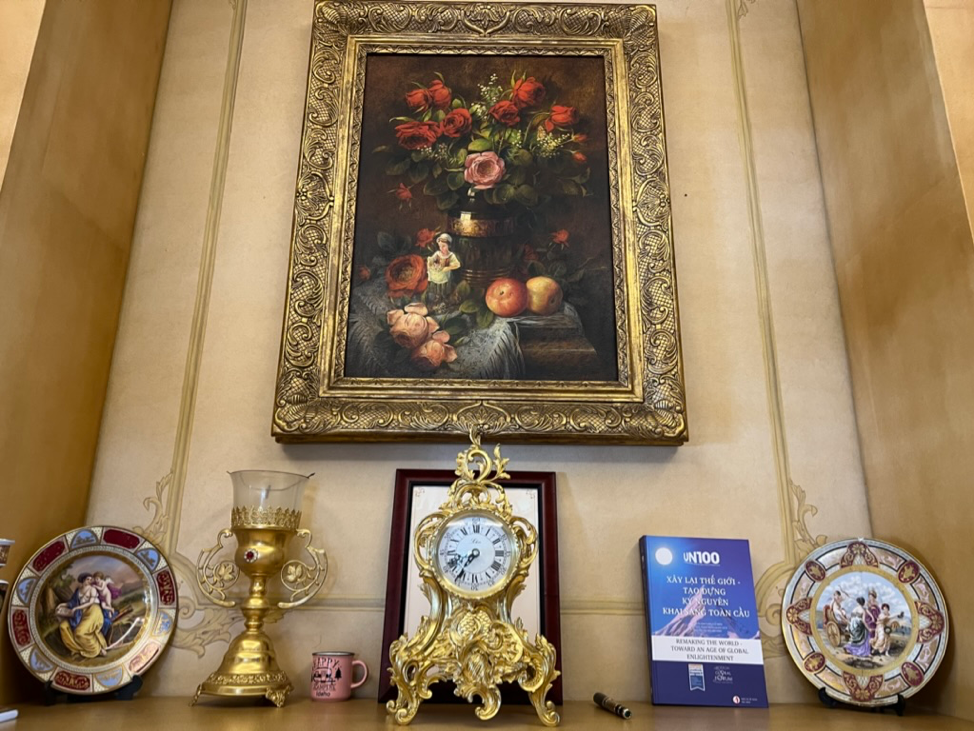
by Editor | Jun 19, 2022 | Global Alliance for Digital Governance, Reports, News
With the UK professing a global digital outlook, its strength in artificial intelligence (AI) reflects its ability to compete confidently on the world stage, so it is important to analyze whether the fundamentals are in place for the UK to go even further and take a leading position.
The National AI Strategy was unveiled in September 2021, six months after the AI Council published its AI roadmap report that outlined 16 recommendations to help develop the UK’s strategic direction for AI. The AI Council, an independent expert committee, has members from industry, the public sector and academia, and works to support the growth of AI in the UK.
The National AI Strategy outlines a 10-year plan that represents a step-change for AI in the UK. It recognizes that maximizing AI’s potential will increase resilience, productivity, growth and innovation in the private and public sectors
Boston Global Forum (BGF), Club de Madrid and AI World Society (AIWS) propose an initiative: establishing a Global Alliance for Digital Governance (GADG). This is a part of Social Contract for the AI Age, Framework for AI International Accord, BGF Conference of July 1st, 2020, and the book Remaking the World – Toward an Age of Global Enlightenment.
https://www.computerweekly.com/opinion/Governance-and-progression-of-AI-in-the-UK


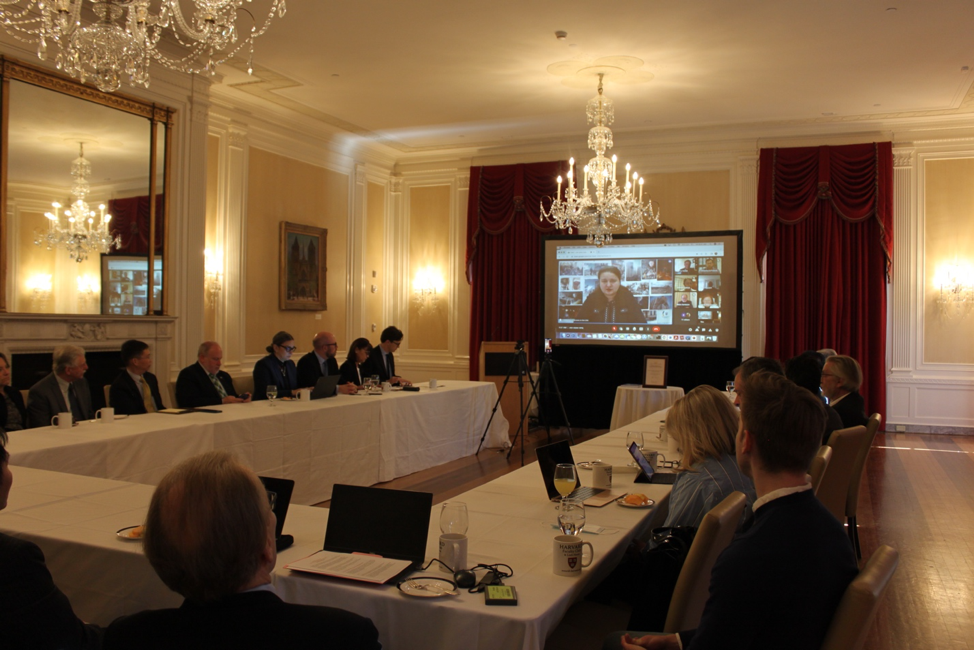
by Editor | Jun 13, 2022 | Statements, News, Practices in Cybersecurity
At the initiative of the United States, the United Nations Security Council held a briefing on May 23 on the use of digital technologies in maintaining international peace and security. Among the compelling statements made was that of the Permanent Representative of India, Ambassador T.S Tirumurti, who proposed five issues for the Council’s consideration; addressing abuse of digital technologies by terrorist groups; leveraging of expertise by digitally advanced States to further contemporary forms of cross border terrorism; the need for a collaborative rules based approach to resolve problems and threats that arise from the digital domain; the importance of these technologies in “protecting the protector” in UN peacekeeping missions and effective exchange of information between countries on misuse of digital technologies.
Read the full text here:
https://www.pminewyork.gov.in/IndiaatUNSC?id=NDYxNA,
At the BGF-Club de Madrid Policy Lab on “Fundamental Rights in AI & Digital Societies: Towards an International Accord”, speakers agreed that the global community cannot wait for governments or international organizations to act. The Global Alliance for Digital Governance will take action to connect think tanks, influencers, experts, and citizens to contribute to building International Laws, International Accord on AI and Digital, while simultaneously working with governments and international organizations towards this goal.
Boston Global Forum (BGF), Club de Madrid and AI World Society (AIWS) propose an initiative: establishing a Global Alliance for Digital Governance (GADG). This is a part of Social Contract for the AI Age, Framework for AI International Accord, BGF Conference of July 1st, 2020, and the book Remaking the World – Toward an Age of Global Enlightenment.

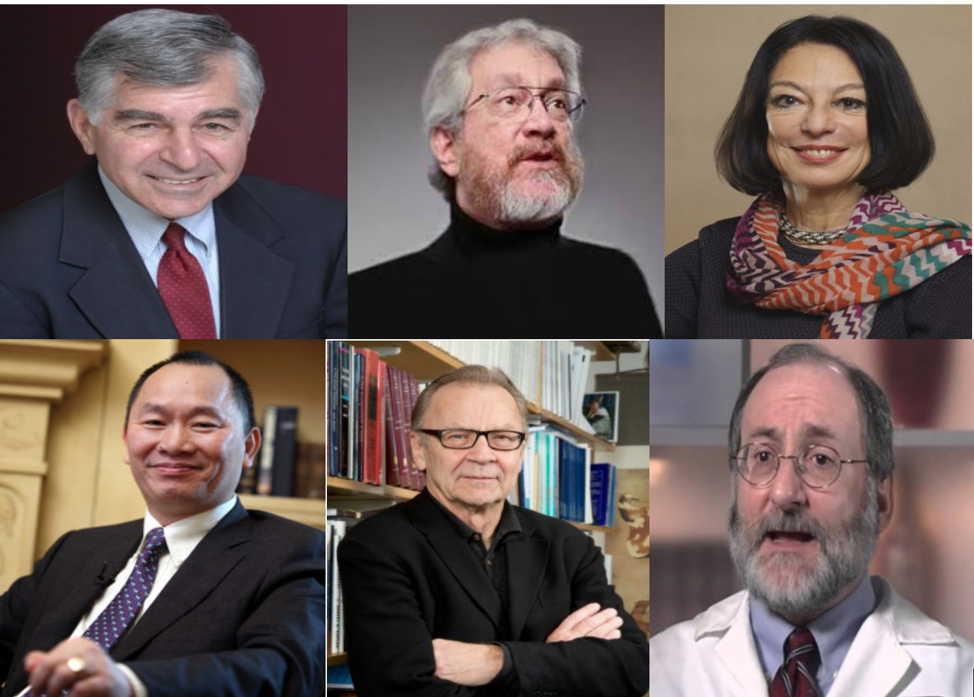
by Editor | Jun 6, 2022 | Global Alliance for Digital Governance, Global Law and Accord on AI and Digital, News
The Ministry of Electronics and Information Technology (MeitY) has issued a draft National Data Governance Framework to mobilise citizen non-personal data for use by public and private entities in a bid to improve services.
The draft policy proposes launching a non-personal data-based India datasets programme. It also addresses the methods and rules to ensure that non-personal and anonymised data from both the government and private entities are safely accessible by the research and innovation ecosystem.
The Minister of State (MoS) for Electronics and Information Technology, Rajeev Chandrasekhar, stated that the National Data Governance Framework will appeal to artificial intelligence (AI) startups, AI research entities, and government departments. He called it an important piece of policy framework that will help the country achieve its target to be a US$1 trillion digital economy. The policy will apply to all government departments and entities. Its rules and standards will be applicable to all data collected and managed by any government entity.
The framework will also accelerate the digitisation of government operations. Currently, digital government data is stored, managed, and accessed in differing and unpredictable ways across different government entities, weakening the efficacy of data-driven governance and preventing an innovative and seamless ecosystem of data science, analytics, and AI. According to the draft, the power of data must be harnessed for more effective digital governance and innovation.
https://opengovasia.com/india-issues-new-draft-data-governance-framework/
Through this Draft Data Governance Framework, Boston Global Forum (BGF) recognizes that the Indian Government follow the standards of the Social Contract for AI Age.

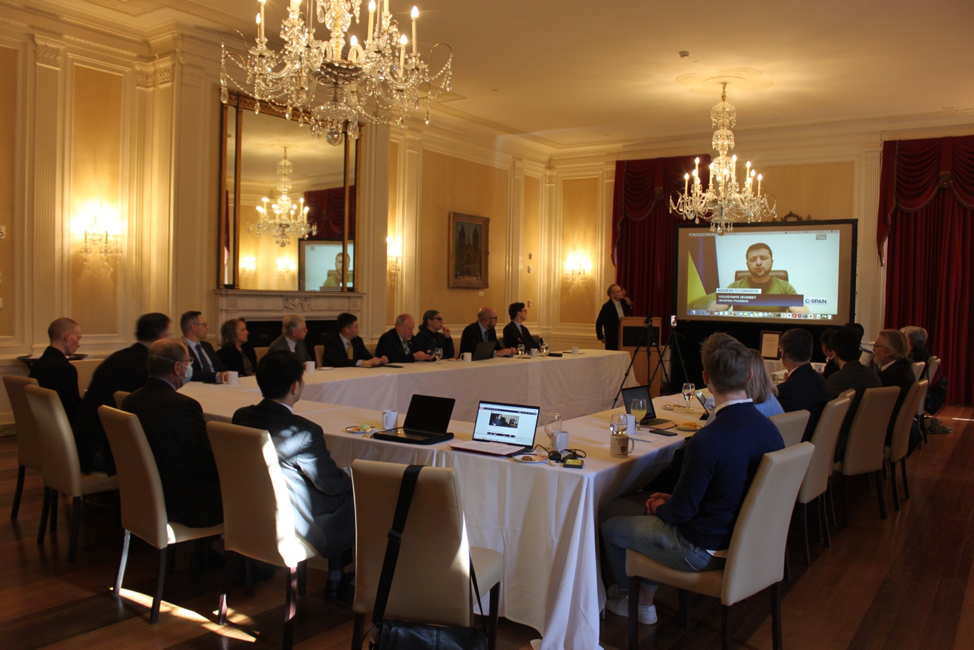
by Editor | Jun 6, 2022 | Global Alliance for Digital Governance, Global Law and Accord on AI and Digital, News
The United States has been working to codify the National Artificial Intelligence (AI) Initiative that focuses on six strategic pillars: improving AI innovation, advancing trustworthy AI, creating new education and training opportunities through AI, improving existing infrastructure through new technologies, facilitating federal and private sector utilization of AI to improve existing systems, and promoting an international environment that supports further advances in AI. In April 2022, the U.S. Department of Commerce, and the National Institute on Standards (NIST) announced members of the inaugural National Artificial Intelligence Advisory Committee (NAIAC), which will be tasked with advising the Biden administration on how to proceed with national AI governance efforts. At their first meeting on May 4, 2022, the NAIAC discussed the use of AI pertaining to U.S. competitiveness, issues related to workforce, and whether there is adequate national oversight of AI systems. Taken together, the objectives of the national AI initiative and the creation of the NAIAC will ensure strategic and timely approaches to the design and deployment of autonomous systems, as well as further establish national norms.
The Global Alliance for Digital Governance (GADG) considers the US as a major player in global digital governance, in maintaining and protecting democratic values based on standards and values of Social Contract for the AI Age. GADG will work with the Indian Government to synthesize the capacity of two countries in Global Digital Governance.
The original article was posted at the Brookings Institute.

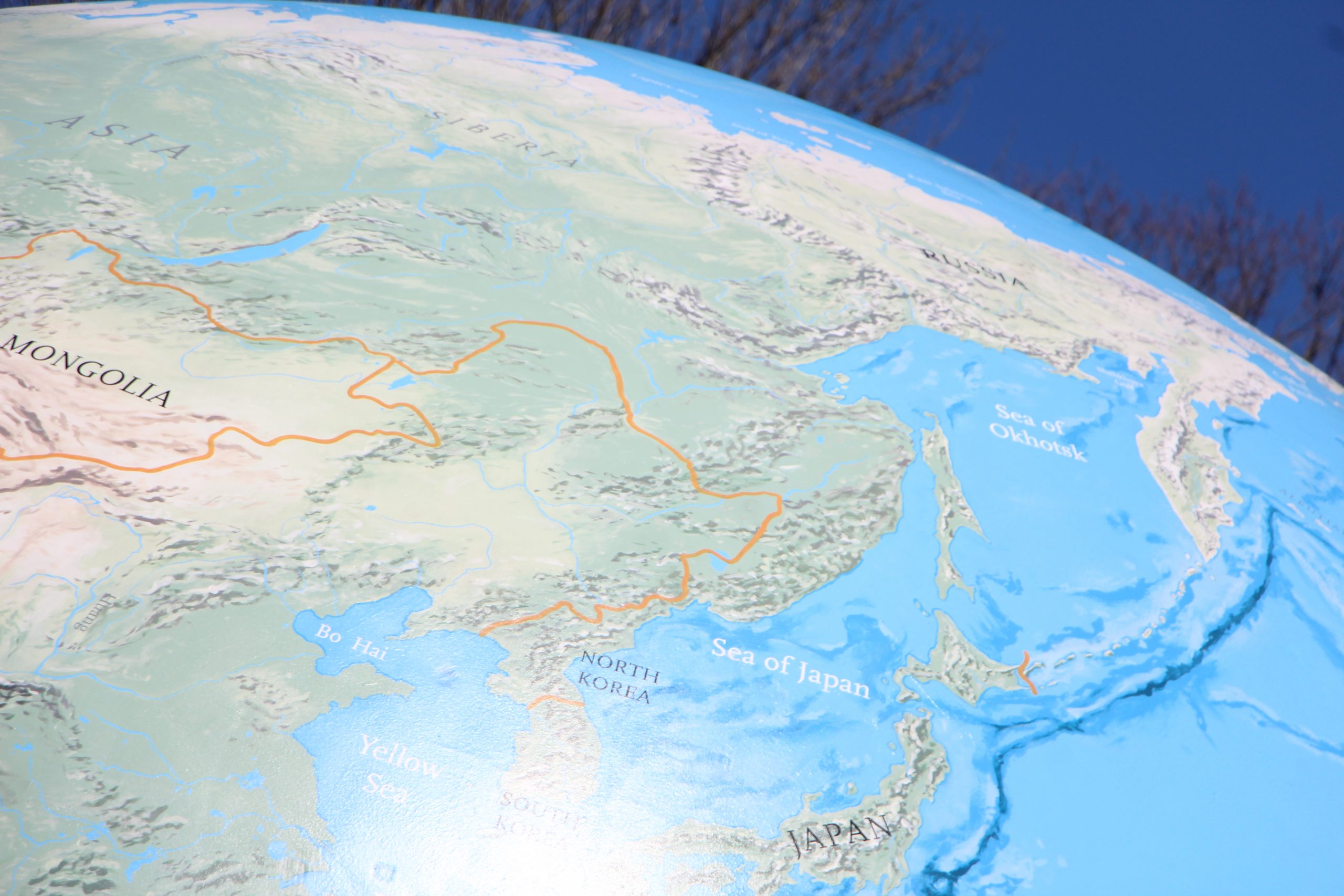
by Admin | May 28, 2022 | AIWS City and Rebuilding Ukraine, Global Alliance for Digital Governance, AIWS City, Reports, AIWS and the Age of Global Enlightenment
The Ukrainian people are currently enduring an unprovoked war that has resulted in tens of thousands of combatant and civilian deaths. Many cities and towns have been destroyed by indiscriminate Russian bombing. The free, democratic nations of the world have rallied...

by Admin | Feb 6, 2022 | AIWS and the Age of Global Enlightenment
On February 2nd, 2022, Boston Global Forum and Michael Dukakis Institute designed to save treasure of the Age of Global Enlightenment at the AIWS City, it includes historical documents, images of:
World Leader for Peace and Security Award:
Shinzo Abe, Prime Minister of Japan 2015
Angela Merkel, Chancellor of Germany 2015
Ban Ki-moon, Secretary General of United Nations 2016
Toomas Hendrik Ives, President of Estonia 2017
Sauli Niinistö, President of Finland 2018
Vaira Vike-Freiberga, President of Latvia and Club de Madrid, 2019
Ursula von der Leyen, President of European Commission 2020
Andreas Norlén, Speaker of Swedish Parliament 2021
World Leader in AIWS Award:
Angel Gurria, Secretary General of OECD 2018
Vint Cert, Father of Internet 2019
Judea Pearl, Professor of UCLA 2020
Ambassador Stavros Lambrinidis the Head of the Delegation of the European Union to the United States 2021
AIWS Distinguished Lecturer:
Taro Kono, Japanese Minister of Defense
Liam Byrne, Member of UK Parliament
Kazuo Yano, Innovator of Hitachi, Japan
David Bray, Atlantic Council
Distinguished Contributors to the book” Remaking the World – Toward an Age of Global Enlightenment”:
Shinzō Abe, Prime Minister of Japan (9/2006-9/2007, 12/2012-9/2020), 2015 World Leader for Peace and Security Award.
Ashton Carter, Former U.S. Secretary of Defense, Director of the Belfer Center for Science and International Affairs, Belfer Professor of Technology and Global Affairs, Harvard University.
Vint Cerf, “Father of the Internet”, Vice President and Chief Internet Evangelist for Google, Co-author of Social Contract for the AI Age, 2019 World Leader in AI Society Award.
Nazli Choucri, Professor of Political Science, MIT, Boston Global Forum Board Member.
Ramu Damodaran, Chief of the United Nations Academic Impact (UNAI), Co-Chair of the United Nations Centennial – BGF and UNAI Initiative in Honor of the United Nations 2045 Centenary.
Michael Dukakis, Former Governor of Massachusetts, Chairman of the Michael Dukakis Institute for Leadership and Innovation, Co-Founder and Chairman of the Boston Global Forum, Co-Founder of the AI World Society.
Eva Kaili, Member of the European Parliament, Chair of the European Parliament’s Science and Technology Options Assessment Panel (STOA), Chair of the Centre for Artificial Intelligence (C4AI), Head of the Hellenic S&D delegation.
Robin Kelly, U.S. Representative (D-IL 2nd District), Vice Chair of the House Energy and Commerce Committee, Member of the House Committee on Oversight and Reform.
Ban Ki-Moon, Secretary-General of the United Nations (1/1/2007 – 31/12/2016), Lead the UNESCO Global Education First Initiative, 2016 World Leader for Peace and Security Award.
Didzis Kļaviņš, Senior Researcher, University of Latvia.
Taro Kono, Japanese Minister of Defense (9/2019 – 9/2020), Member of the House of Representatives, Japan.
Zlatko Lagumdžija, Former Prime Minister and Former Foreign Minister of Bosnia-Herzegovina, World Leadership Alliance – Club de Madrid (WLA-CdM) Member, Member of the History of AI Board, AIWS.
Stavros Lambrinidis, Ambassador of the European Union to the United States, 2021 World Leader in AI World Society Award.
Ursula von der Leyen, President of the European Commission, 2020 World Leader for Peace and Security Award.
Yasuhide Nakayama, Japanese Defense State Minister, Member of the House of Representatives, Japan, Head of Japan’s Liberal Democratic Party’s Foreign Affairs Division, Mentor of AIWS.net.
Paul Nemitz, Director for Fundamental Rights and Union citizenship in the Directorate-General for JUSTICE of the European Commission, co-author of the AIWS-G7 Summit Initiative 2019.
Nguyễn Anh Tuấn, CEO of the Boston Global Forum, Director of the Michael Dukakis Institute for Leadership and Innovation, Co-Founder of the AI World Society, Founder and former Editor in Chief of VietNamNet.
Andreas Norlén, Speaker of the Swedish Parliament.
Joseph Nye, Harvard University Distinguished Service Professor, Emeritus and former Dean of the Harvard’s Kennedy School of Government, Former Assistant Secretary of Defense for International Security Affairs, Member of Boston Global Forum’s Board of Thinkers.
Žaneta Ozoliņa, Professor at the Department of Political Science at the University of Latvia and the Director at the Centre for International Politics, Chairwoman of the Latvian Transatlantic Organization.
Thomas Patterson, Bradlee Professor of Government and the Press, Harvard University, Research Director of The Michael Dukakis Institute for Leadership and Innovation, Co-founder of the Boston Global Forum.
Judea Pearl, Professor of Computer Science and Director of the Cognitive Systems Lab at the University of California, Los Angeles, recipient of the A.M. Turing Award, 2020 World Leader in AI World Society Award.
Alex Pentland, the Toshiba Professor at MIT, Director, MIT Connection Science and Human Dynamics lab, Co-author of Social Contract for the AI Age.
Iain Duncan Smith, Conservative Member of the Parliament of the United Kingdom.
Vaira Vīķe-Freiberga, 6th President of Latvia (1999-2007), President of World Leadership Alliance – Club de Madrid (WLA-CdM) 2013-2019; 2019 World Leader for Peace and Security Award.
It also includes:
- Cornerstones and figures in the History of Artificial Intelligence
- Cornerstones and figures that contribute in building the Age of Global Enlightenment and the United Nations Centennial Initiative

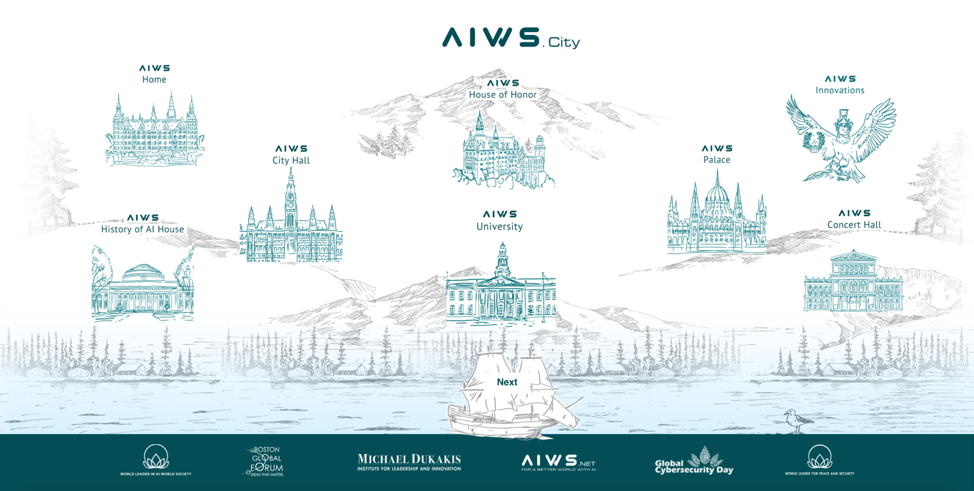
by Admin | Jan 30, 2022 | Global Alliance for Digital Governance, News
AIWS Leadership Master Program belong to AIWS University (AIWS City), will practice their leadership by practicing at Global Alliance for Digital Governance. They will be assigned to solve issues:
- Misinformation, Disinformation, and Global Enlightenment Education
- The Value System and Innovation Ecosystem of AI World Society (AIWS)
- Building trust between leaders of nations
- The Fundamentals for new international cooperation on the basis of standards of the Social Contract for the AI Age
- Building Global Law and Accord on AI and Digital technologies
- Ensuring responsible and democratic exercise of state power in the AI and digital age
- Building on opportunities in technology and Big Tech companies while addressing their challenges, threats, and dangers.
They continue with support, leading of presidents, prime ministers, leading thinkers, innovators:
- Connect and organize discussions between leaders of companies
- Organize discussions between leaders of governments
- Connect and organize discussions with professors of Law Schools
- Monitor governments in standards of Social Contract for the AI Age
- Connect companies and organizations to invite them join the Exchange AIWS Values
- Using Blockchain to create crypto-currency of AIWS Values.

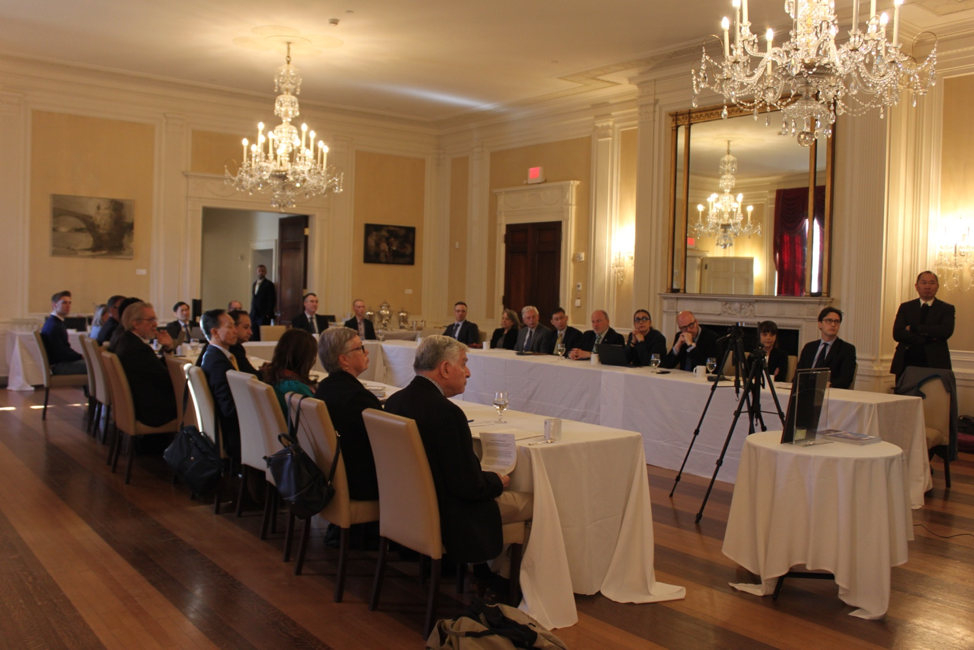
by Editor | May 8, 2022 | AIWS City and Rebuilding Ukraine, News
Thank you, thank you very much. I’m really honored and privileged to be with you, and of course I want to thank to Michael Dukakis and Boston Global Forum for remaining such impressive group of people there in your premises in Boston. And of course us who are able to be with you, not share the floor but share the screen at least, along with such a very important topic of course, it’s my very honor and privilege also to its entire time to speak after my multiple president, president Danilo Turk, who is my president very many times, usually before as a president of Club de Madrid, and now as the Co-Chair and president of the international center, which now I again very easily call my dear friend as my president Vaira. Of course after her speech about Ukraine especially about having in mind and her experience, her knowledge, her wisdom, and her passion about people who are going through such a terrible terrible terrible challenges like Ukraine people do, because as she mentioned obviously a very tough experience in her lifetime as refugees, running away from a similar type of evil that is chasing Ukrainian people today. Of course at the same time I have also actually shared with you a few of my personal experiences with a recent one and not so recently recent one is as a member of the NGIC team that and the leadership of Moldova we put together in the last month. First we want to visit refugees. Refugee acceptance in Moldova, in Romania, and in Poland, and that experience is in order to take some kind of let’s say make anything which is possible to somehow you know to help the people who just not so long time ago had normal lives that suddenly just fell apart. I was in, as i said in Moldova, at least in one few refugee center, and just to give you the feeling of it, Moldova is one of the smallest countries in Europe, but countries show that they’re a small nation but with enormously great heart. People have enormously great heart especially having in mind that they may be the next Ukraine. Moldova may be the next victim of Putin. Putin army but people over there trying to do their best in order to accept uh accept refugees from Ukraine. When you take a look, just from the perspective of Moldova, [which] is the country that today in schools one out of seven children in schools are refugees coming from Ukraine. Poland is a country that is accepting the biggest number of refugees and helping enormously, and this is something which, when I was there, I was seeing the same very same pictures go through in front of my eyes. That I saw 30 years ago, when i was Deputy Prime Minister and first independent republican Bosnian to governor government of the independence, where we were attacked by Regional Putin of that time, […]. The same type of mindset, the very same scenario, everything is déja vu. Everything that we are seeing today in Ukraine, from military perspective, propaganda perspective, brutality, the myths, the grandeurs as Vaira likes to say, I mean about great Russia or great Serbia 30 years ago. We saw all those things. And I remember 30 years ago it was first time when I met refugees just 30, 40 kilometers from my home city. There were people that looked exactly the same and they went exactly to the same things that people are going right now in Ukraine. Those are the people that just some months ago, or maybe not years but months ago, they had normal life. They were planning to have their summer vacation sometimes with graphic cards or some place in Spain, or you know just having normal life. Suddenly their lives were simply destroyed.
What I’m trying to say is that what was happening to us 30 years ago, it’s happening in Ukraine right now. And this has to be very clear signal to all of us that 20 or 30 years ago, it was in Bosnia or in Croatia or some place in western Baltimore. Today it is in Ukraine. Tomorrow it can be any place in Europe. I don’t want to go outside of Europe. I’ll just stay to Europe, so these are the things: if we do not confront them together, with force, with wisdom, with solidarity, then it can happen to any one of us. Next point is something which I want to share with you, is I think it is very important today. We are talking about rebuilding Ukraine, but first we have to talk and focus on defending Ukraine, defending Ukraine and helping people who are defending themselves, because today over in Ukraine they’re defending Ukraine, but they are not [just] defending Ukraine; they’re defending all of us; they’re defending Europe; they’re defending western Balkan, because after Ukraine, Georgia. After Georgia, maybe western Balkan, Baltic countries, Poland of course, Moldova, Bulgaria, who knows who can be the next. So it is very important that we do everything that’s in our power to show that we are standing up for Ukraine, that Ukraine has to be defended, and they will be rebuilt. And what is important to understand, that I think is very important: it is of crucial importance that we start showing today, that we are thinking together how we can rebuild Ukraine, rebuild Ukraine in economic sense, in the sense of not only economy, but the life way of Ukraine, which is educational facilities, healthcare facilities, cultural facilities, everything that actually is giving the substance to the life that will be happening. Of course connectivity as I said is one of the things that may help today, which was not available, because when my country was on the process of reconstruction 25 years ago. That connectivity, with that context, I think is most important in reconstruction, when it comes to technology, when it comes to information, when it comes to education, special education. That is part of our overall activities, about the social contract for the age of partitioning facial intelligence. We have to see how we can tackle and penetrate through these different layers of reconstruction of the country.
And the last point, it looks to me that I have mentioned very precisely, this troika: Peter the Great, Tataria the Great, and of course Putin. [They all try to be the first person to make a great Russia…] but Putin needs to be rebuilding, so to say, make Russia great again. And who knows, it feels like a joke, but frankly speaking, it’s not a joke [inaudible…]. In order to recreate a Great Serbia, Putin exterminated everyone who does not fit in great Serbia. Everyone who is not Serb and everyone who does not support Great Serbia is someone that has to be exterminated. But it’s kind of, you know, it was kind of strange to us, but you know last Communist leader is filling the myths of the past and trying to make a great nationalistic state, which basically speaking looks like kind of contradiction between […] strategy and nationalistic nations [inaudible…]
mindset that wants to use everything that is possible in order to put the people under its own mind: Great Serbia, Great Communist Country, Great Russia, great whatever, great. But the point is that our Putin is the fourth one. It’s kind of paradoxical that Stalin was not Russian. Katarina the Great, she was also not Russian. of course Peter the great was Russian. And listen, it looks like Putin would be the, let’s say he would make an even fight between Russians and non-Russians, are trying to make Great Russia. So this brings me back to my original point. Everything is understanding because we understand everything, and what we have to do is we have to show that we are together, and the world understands, everywhere in the world, that today fight for defending and rebuilding Ukraine is not quite the fight to defend only Ukraine, but this is the fight to defend the free world, world of moral [inaudible]. Today that we will do everything in our power to help Ukraine, help Ukraine to be, I won’t say great, just be normal, just be normal part of the free world.
So thank you thank you for the privilege to be with you today, and I really do hope that we will show that it is possible to stand after Ukrainian people, and to show to Putin that definitely sooner or later, his effort will come to nothing.

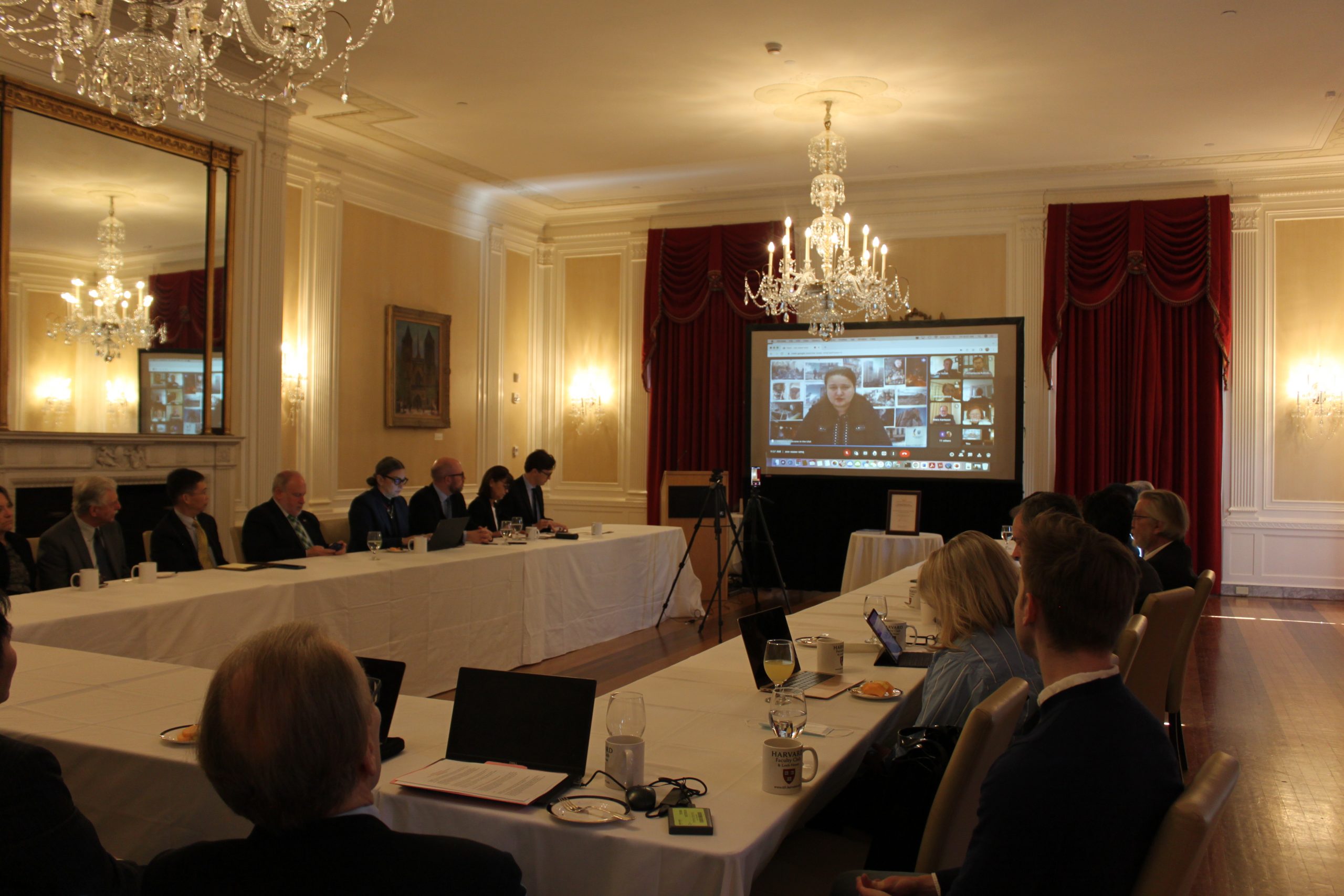
by Editor | Apr 29, 2022 | AIWS City and Rebuilding Ukraine, News
Governor Michael Dukakis, Nguyen Anh Tuan, Zaneta Ozolina
Thomas Patterson, Nazli Choucri, Alex Sandy Pentland, David Silbersweig, Mats Karlsson, Jim McManus
As Russia’s war against Ukraine continues, global leaders and diplomatic observers have turned their attention to two distinct agendas to help resolve the conflict. The first is to provide immediate support for Ukraine as it endures unprecedented attacks by Russia conducted with modern weapons and massive military power. The second involves planning for the prevention of unprovoked aggression through the adoption of values and standards that will ensure peaceful relations worldwide.
Short Term Strategies to Support Ukraine
Most immediate are the actions to support Ukraine and demonstrate the extent of global opposition to such aggression with indiscriminate violence. Bombing of urban civilian areas — apartment buildings, hospitals, schools and farms — violates international law and norms of warfare agreed upon by the international community.
Participants in the Boston Global Forum Conference April 29, 2022 proposed the follow steps to assist Ukraine at this critical time of immense need:
- Provide humanitarian and other support to address the war-related health crisis in Ukrainian cities and towns. This includes medical supplies, health care providers, equipment, temporary hospitals and all related assistance;
- Deliver advanced weapons, offensive and defensive, to compensate for uneven scales in the war;
- Share all intelligence information with the Ukrainian Government — including contributions by NATO and European nations– pertaining to Russian troop movements, tactical weapons locations and battle plans;
- Sustain existing economic sanctions and impose sanctions to energy resources, which at the present moment is the main financial source supporting Russia’s war machinery
- Support and engage in the debate on limitation and exclusion of Russia from the UN Security Council, as a country which does not respect the UN Charter and its founding principles.
- Provide strategic military advice to help in the fight against Russian air, ground and naval forces;
- Assist Ukrainian students and children, in the country who face shortages of basic needs such as food, shelter and medical care. Assist in sustaining, where possible, educational institutions. Call on Ukrainian students outside the country to find ways of helping and rebuilding Ukraine.
- Call for organizing a High-Level International Conference on Peace, Security and Territorial Integrity for Ukraine, with participation of leaders from Russia, Ukraine, United States, and the European Union, to be held in Paris, Riga, or Stockholm.
Future Strategies to Support Ukraine
The Ukraine invasion is a painful lesson for the world that compromise with dictators and authoritarian regimes only feeds aggression. In response, speakers at the Boston Global Forum focused on the advantages of promoting development of a competitive economy, in conjunction with a flourishing democratic political system.
Above all, the war on Ukraine has highlighted ways in which the leaders of Russia deceive the public through their messages and actions, and the use of their propaganda systems. They promised to create “humanitarian corridors” to allow civilian non-combatants to leave areas under attack, only to renege on those promises. Russia has not made any serious attempt to engage in peace talks. All evidence so far is of hollow commitments.
Speakers at the conference underscored the need to address Russia’s aggression and its unprecedented disinformation by adopting specific steps:
- Promote shared democratic values through multilateral organizations, NGOs, universities, business entities, and academic centers; Comprehensive multinational and new form of Marshall plan is needed for Ukraine ensuring fast reconstruction and recovery from the war. It will serve as a coordinated and efficient platform for economic development, social assistance and human empowerment.
- Develop legal and humanitarian standards as foundation for 21st century international relations. For example, the Social Contract for the AI Age and the book Remaking the World – Toward an Age of Global Enlightenment provide invaluable guidance for rational rule-making in the Age of Digital and AI.
- Encourage the formation of a New Alliance to protect rational standards and the security of countries that support them.


















